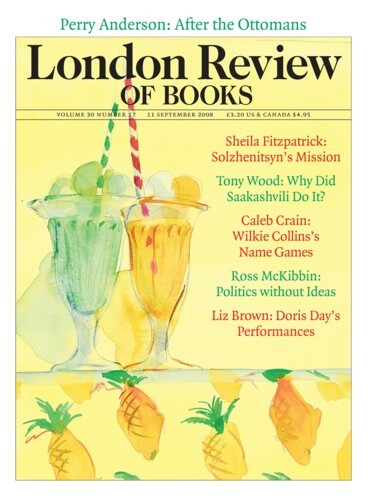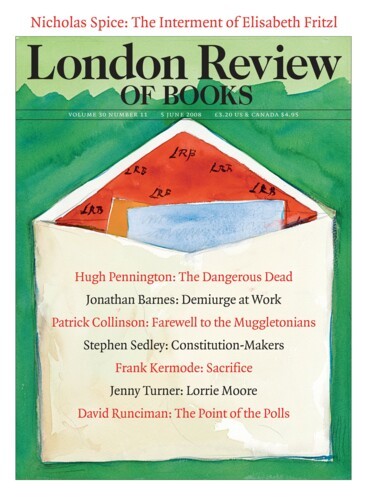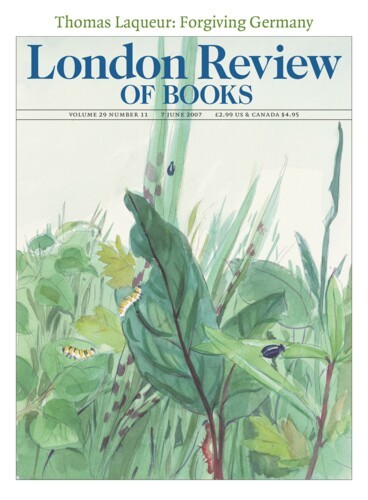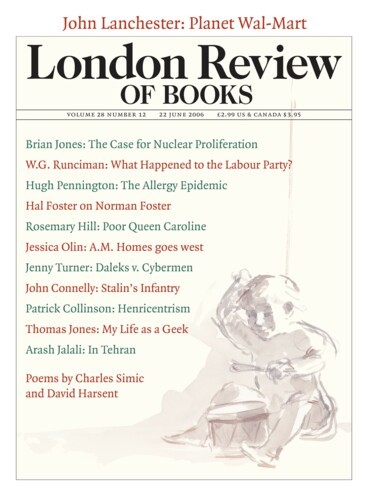Move Your Head and the Picture Changes: Helen DeWitt
Jenny Turner, 11 September 2008
Some years ago, the novelist David Foster Wallace submitted himself to a long television interview with Charlie Rose, the PBS chat-show host. It was a terrific performance, and in it Wallace talked about why, in much of his work, narrative is split into body-text and footnotes:
There’s a way, it seems to me, that reality’s fractured right now, at least the reality that I live in. And the difficulty about . . . writing about that reality is that text is very linear and it’s very unified, and . . . I, anyway, am constantly on the lookout for ways to fracture the text that aren’t totally disorienting – I mean, you can take the lines and jumble them up and that’s nicely fractured, but nobody’s gonna read it.
Last year, Helen DeWitt posted this passage on paperpools, her blog: it ‘says everything I might have wanted to say about life, the universe, postmodernism and Your Name Here.’ Your Name Here is a 120,000-word novel; DeWitt is one of its authors, the category of authorship itself having been split. (At this point, it might have been appropriate to spin off into a footnote about its other author, Ilya Gridneff, an Australian journalist of Russian origin, born in Sydney in 1979 and currently working in Papua New Guinea for the Australian Associated Press, except that the DeWitt/Gridneff partnership doesn’t do much fracturing with footnotes. Epistolary structure and multiple avatars, yes, scans of original documents, including contracts, because ‘without the contractual details any book is just fogbound Jamesian kitsch,’ but not really footnotes: perhaps because, since it’s an authorship made up of two people, the challenge is to discover how, like Bloom and Stephen Dedalus, Don Gately and Hal Incandenza, they might ever be brought together at all.)





